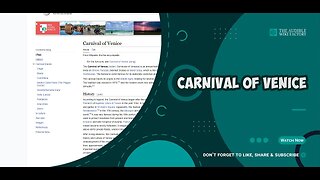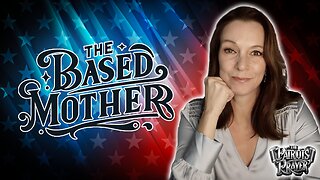Sir Isaac Newton was an English mathematician, physicist, astronomer, alchemist, theologian,
Sir Isaac Newton was an English mathematician, physicist, astronomer, alchemist, theologian, and author (described in his time as a "natural philosopher"). He was a key figure in the philosophical revolution known as the Enlightenment. His book Philosophiæ Naturalis Principia Mathematica (Mathematical Principles of Natural Philosophy), first published in 1687, established classical mechanics. Newton also made seminal contributions to optics, and shares credit with German mathematician Gottfried Wilhelm Leibniz for developing infinitesimal calculus.
In the Principia, Newton formulated the laws of motion and universal gravitation that formed the dominant scientific viewpoint for centuries until it was superseded by the theory of relativity. Newton used his mathematical description of gravity to derive Kepler's laws of planetary motion, account for tides, the trajectories of comets, the precession of the equinoxes and other phenomena, eradicating doubt about the Solar System's heliocentricity. He demonstrated that the motion of objects on Earth and celestial bodies could be accounted for by the same principles. Newton's inference that the Earth is an oblate spheroid was later confirmed by the geodetic measurements of Maupertuis, La Condamine, and others, convincing most European scientists of the superiority of Newtonian mechanics over earlier systems.
Newton built the first practical reflecting telescope and developed a sophisticated theory of colour based on the observation that a prism separates white light into the colours of the visible spectrum. His work on light was collected in his highly influential book Opticks, published in 1704. He also formulated an empirical law of cooling, made the first theoretical calculation of the speed of sound, and introduced the notion of a Newtonian fluid. In addition to his work on calculus, as a mathematician Newton contributed to the study of power series, generalised the binomial theorem to non-integer exponents, developed a method for approximating the roots of a function, and classified most of the cubic plane curves.
Newton was a fellow of Trinity College and the second Lucasian Professor of Mathematics at the University of Cambridge. He was a devout but unorthodox Christian who privately rejected the doctrine of the Trinity. He refused to take holy orders in the Church of England, unlike most members of the Cambridge faculty of the day. Beyond his work on the mathematical sciences, Newton dedicated much of his time to the study of alchemy and biblical chronology, but most of his work in those areas remained unpublished until long after his death. Politically and personally tied to the Whig party, Newton served two brief terms as Member of Parliament for the University of Cambridge, in 1689 to 1690 and 1701 to 1702. He was knighted by Queen Anne in 1705 and spent the last three decades of his life in London, serving as Warden (1696 to 1699) and Master (1699 to 1727) of the Royal Mint, as well as president of the Royal Society (1703–1727).
EARLY LIFE
Isaac Newton was born (according to the Julian calendar in use in England at the time) on Christmas Day, 25 December 1642 (NS 4 January 1643), "an hour or two after midnight", at Woolsthorpe Manor in Woolsthorpe-by-Colsterworth, a hamlet in the county of Lincolnshire. His father, also named Isaac Newton, had died three months before. Born prematurely, Newton was a small child; his mother Hannah Ayscough reportedly said that he could have fit inside a quart mug. When Newton was three, his mother remarried and went to live with her new husband, the Reverend Barnabas Smith, leaving her son in the care of his maternal grandmother, Margery Ayscough (née Blythe). Newton disliked his stepfather and maintained some enmity...
LINK TO ARTICLE: http://en.wikipedia.org/wiki/Isaac_Newton
TAGS: Isaac Newton, Theoretical physicists, Reputed virgins, Presidents of the Royal Society, Post-Reformation Arian Christians, Philosophers of science, People from South Kesteven District, People educated at The King's School Grantham, Optical physicists, Nontrinitarian Christians, Natural philosophers, Members of the pre-1707 Parliament of England for the University of Cambridge, Masters of the Mint, Lucasian Professors of Mathematics, Knights Bachelor, History of calculus, Hermeticists, Linear algebraists, British geometers, Fluid dynamicists, Fellows of Trinity College Cambridge, Fellows of the Royal Society, Experimental physicists, Enlightenment scientists, English physicists, English MPs 1701–1702, English MPs 1689–1690, English mathematicians, English knights, English justices of the peace, English inventors, English Christians, English Anglicans, English alchemists
#GeneralKnowledge #AudibleWikiFactory #Audible #Wikipedia #IsaacNewton
-
 13:12
13:12
The Audible Wiki Factory
1 year agoThe Carnival of Venice is an annual festival held in Venice, Italy. The carnival ends on Shrove
467 -
 9:10
9:10
JoBlo Originals
17 hours agoSniper: The Best Movie You Never Saw (With 9 Sequels?!)
1.04K1 -
 12:37
12:37
The Gun Collective
14 hours agoNEW GUNS THIS WEEK - TGC News!
1.97K4 -
 16:34
16:34
Adam Does Rants
12 hours agoI Was IGNORED By A RUDE Chipotle Worker! - RANT!
1.06K5 -
 14:28
14:28
The Based Mother
20 hours agoThe Based Mother Ep. 14 - Kamala Harris' VP Pick Tim Walz | Kamala's Policies
1.51K6 -
 1:19:40
1:19:40
Maj Toure
19 hours ago"The Second Amendment Wouldn't Work Outside the U.S." with @ZubyMusic
1.46K1 -
 1:25:18
1:25:18
The Late Kick with Josh Pate
12 hours agoLate Kick Live Ep 539: Michigan Fallout | Camp Intel | Sleeping Giant | Record Predict: UGA & Oregon
6.98K -
 2:26:29
2:26:29
Jerry After Dark
14 hours agoJerry After Dark: Blind & Deaf Cooking
73.9K12 -
 3:51:15
3:51:15
Akademiks
15 hours agoDrake Leaks 100 GB of New Content? Trump Streamed w/ Adin? Gunna aint a Rat No More! Ti Arrested?
106K15 -
 2:18:01
2:18:01
Laura Loomer
12 hours agoEP65: SUMMER OF JIHAD: Kamala's VP Pick EXPOSED for ISIS Ties!
79.3K126